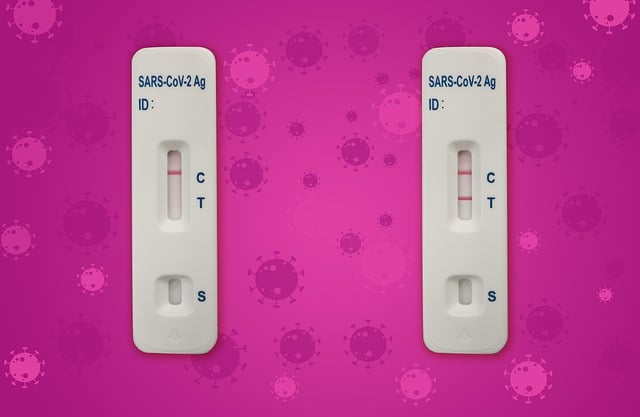Blood tests for vitamin deficiency are key tools to identify levels of essential vitamins and minerals, such as B12, D, C, iron, and magnesium. Global trends show widespread Vitamin D and iron deficiencies, diagnosed through specific blood measurements. Early identification allows personalized dietary adjustments and supplement recommendations to address deficiencies, enhancing overall well-being. Understanding test results is crucial for targeted action, often with professional guidance, to significantly impact health.
Uncover the power of a detailed blood test in identifying nutrient deficiencies. This comprehensive guide explores how these tests reveal hidden vitamin and mineral gaps in your body. From understanding the basics of blood panels to interpreting results, you’ll learn how to take charge of your health. Discover common deficiencies and the next steps after testing, empowering you to make informed decisions for optimal well-being. Unmask the importance of a blood test for vitamin deficiency today.
- Understanding Blood Tests for Nutrient Deficiencies
- Common Vitamin and Mineral Deficiencies Identified by Blood Tests
- Interpreting Results and Next Steps After a Blood Test for Deficiencies
Understanding Blood Tests for Nutrient Deficiencies
Understanding Blood Tests for Nutrient Deficiencies
Blood tests play a crucial role in identifying nutrient deficiencies, providing essential insights into an individual’s overall health and nutritional status. These tests measure the levels of various vitamins and minerals circulating in the bloodstream, offering a direct look at how well your body is supplied with these vital substances. By analyzing specific markers, healthcare professionals can detect deficiencies early on, enabling timely interventions to enhance overall well-being.
A blood test for vitamin deficiency, for instance, typically assesses levels of key vitamins like B12, D, and C, along with minerals such as iron and magnesium. These tests are often straightforward, involving a simple pinprick to draw a small sample of blood, which is then sent to a laboratory for analysis. The results can reveal important information about your body’s nutrient needs, guiding personalized dietary adjustments or supplements to address any identified deficiencies.
Common Vitamin and Mineral Deficiencies Identified by Blood Tests
Blood tests play a crucial role in identifying nutrient deficiencies, offering valuable insights into an individual’s overall health and well-being. When it comes to vitamin and mineral deficiencies, several common deficiencies can be detected through routine blood assessments. For instance, Vitamin D deficiency is prevalent globally, with many individuals lacking this essential nutrient due to limited sun exposure or dietary insufficiencies. A simple blood test can measure the level of 25-hydroxyvitamin D, providing critical information for healthcare professionals in diagnosing and managing this condition.
Another significant deficiency often identified is iron deficiency anemia. This condition arises from insufficient iron intake or impaired absorption, leading to low levels of hemoglobin and red blood cells. Blood tests measuring ferritin, transferrin saturation, and hemoglobin levels help diagnose this deficiency, which is particularly common among women of childbearing age, athletes, and individuals following vegetarian or vegan diets. Prompt identification through blood testing enables the implementation of appropriate treatments, such as dietary adjustments or supplementation, to alleviate symptoms and improve overall health.
Interpreting Results and Next Steps After a Blood Test for Deficiencies
After receiving your blood test results, the next step is understanding what they mean in relation to your health. A blood test for vitamin deficiency will provide insights into specific nutrient levels in your body. Low levels of certain vitamins or minerals can indicate a deficiency. For instance, a low vitamin D level might suggest you’re not getting enough sunlight exposure, while iron deficiency could be an indicator of anaemia.
Interpreting these results is crucial to taking appropriate action. If a deficiency is detected, the next step is usually to consult with a healthcare professional who can advise on dietary changes and potential supplements. It’s important to remember that each vitamin and mineral plays a unique role in your body’s functions, so addressing deficiencies directly can have a significant impact on your overall health and well-being.
A detailed blood test for nutrient deficiencies is a powerful tool to uncover hidden imbalances in your body. By identifying common vitamin and mineral deficiencies, such as iron, vitamin D, or B12, these tests enable you to take proactive steps towards better health. Interpreting the results accurately is key; consult a healthcare professional who can guide you on appropriate dietary changes or supplements to address any identified deficiencies. Don’t overlook the importance of regular blood testing as part of your overall wellness routine.
